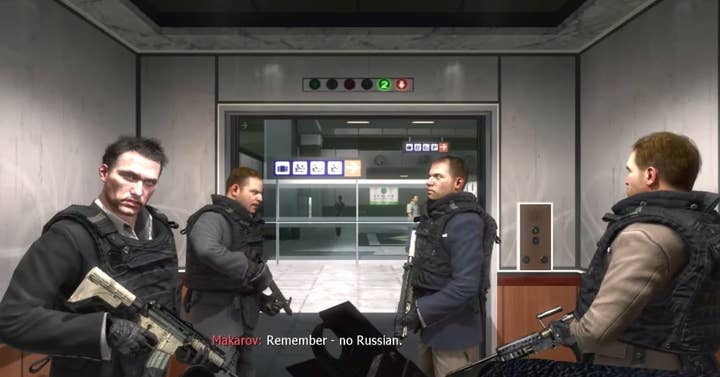Bonuses: Gaming's second favorite surprise mechanic | Opinion
Developers can push themselves to extremes in the hopes of a big payday, but there's no guarantee success will be rewarded
When I was a kid home sick from school, I used to watch Let's Make a Deal, a TV game show hosted by Monty Hall.
The way the show often worked was that Hall would pick a contestant from the studio audience and give them a helpful-but-not-life-changing amount of money. Then he would gesture toward a mystery box or a closed curtain and offer to trade whatever lay within that box or behind that curtain for the money they'd already received. After the contestant had made their decision, the hidden prize was revealed. Here's an example of how it played out.
As exciting as it was to see people win an all-expenses paid vacation or a new car, half the fun of the show was seeing someone fall prey to greed, giving up a sure thing only to discover the box contained nothing but a plate of pancakes, or the curtain was hiding a live goat.
And even if the show took some joy in contestants' misfortune, pretty much everyone went home happy. The contestants always came out at least a little ahead (the booby prizes were typically exchanged for a consolation prize or modest amount of cash), and the show runners got an entertaining and profitable product no matter how many contestants made the right choice.
It was my first exposure to surprise mechanics. And while that sounds like a segue to loot boxes, the more timely parallel is to developer bonuses.
There is one key difference, because while Let's Make A Deal contestants were generally pretty good-natured about discovering a rotten turnip or whatever within their mystery boxes, it's a lot more galling when the thing you just lost wasn't just given to you a minute earlier but was something you'd been pushing yourself for and planning around for months or years.

Some Gearbox Software employees would likely attest to that, given this week's report from Kotaku that the Borderlands 3 studio reneged on promises to pay developers bonuses as high as six figures.
The studio reportedly told employees this week to expect significantly smaller bonuses in the wake of Borderlands 3 because the game cost more than expected, sold less than expected, and because the studio has grown significantly, opening up a second location in Quebec. All of those are good reasons why the game might not have been as profitable as the studio hoped, but it's safe to say the fault for them largely lies above the level of the employees whose bonuses have now been slashed.
The games industry is no stranger to these kind of controversies because bonuses are as tantalizing for developers as they are exploitable for employers. Looking at Gearbox, a dozen current and former staffers told Kotaku that the studio pays below-average salaries with the potential upside of large bonuses when they have a hit. They indicated that Borderlands 2 bonuses measured up to expectations, but when one considers the studio's major releases of the last decade apart from that -- Duke Nukem Forever, Aliens: Colonial Marines, Borderlands: The Pre-Sequel, and Battleborn -- there's not a whole lot there that you'd expect to pay windfall bonuses. Even the one you would expect to pay off big, a blockbuster hit like Borderlands 3 that sold nearly 8 million in its first few months on sale, is turning into a bitter disappointment for developers enticed by visions of an instant nest egg.
Bonus schemes are a carrot dangled in front of developers to incentivize them to do the best job they can. But they can also be used to get them to accept lower pay, to work longer hours, to put up with more than they otherwise would and convince them to stick around in a job that isn't working for them.
"Employers know the promise of a big payday gives them leverage, and that actually paying out bonuses gives up that leverage"
In speaking with developers from Rockstar about the studio's problems with crunch, one of the things I heard repeatedly was that bonuses played a key part in enforcing the company's abusive working culture. There were stories of employees who purchased boats or other status symbols with their bonus checks, but the bonus scheme could be used as punishment as well as reward.
"There was always this idea that if you didn't put in the hours, you'd be fired or laid off after release, your year-end raise or bonus would be affected, and even your career progression would take a hit," a former Rockstar NYC employee said.
Employers know the promise of a big payday gives them leverage, and that actually paying out bonuses gives up that leverage. That's why in 2010, 38 past and then-present Infinity Ward employees sued Activision saying the publisher owed them $54 million and had been holding Modern Warfare 2 bonus payments hostage until Modern Warfare 3 was finished.
Modern Warfare 2 came out in November of 2009, and was massively successful. Modern Warfare 3 was eventually released in November of 2011, so the bonuses ostensibly created to reward work done on Modern Warfare 2 would not be paid out for two whole years after the game set sales records. And even if Activision finally paid the Modern Warfare 2 bonuses in that time frame, it would then have Modern Warfare 3 bonuses to hold over its developers' heads and keep them grinding away through the next game.

This was the second lawsuit Activision was facing over Modern Warfare 2 bonuses, as Infinity Ward co-founders Jason West and Vince Zampella had also taken the publisher to court seeking $36 million because they said Activision had chosen to fire them on fabricated grounds rather than pay out the royalties they were owed.
Activision eventually paid out $42 million to the plaintiffs partway through the legal process of those cases, and later settled them with no details on the final agreement.
But the allure of the bonus is strong, so even in the middle of a bitterly contested legal battle over the company's reluctance to pay out bonuses, Activision was dangling the carrot. Between the filing of those two lawsuits, Activision's community site editor Dan Amrich went on a Facebook page titled "Gamers Against Bobby Kotick and Activision" to say that West and Zampella were indeed owed "very large bonuses" that would be redistributed to the remaining Infinity Ward employees.
"Activision is not pocketing that bonus money," Amrich said. "It's still going to the people who work at IW. But you have to work at IW to get it, see?"
(Oddly enough, that simultaneously gave Infinity Ward developers incentives to a) stick around until they can get paid in like two years when Modern Warfare 3 ships and b) spend that time trying to convince all their colleagues to leave so they could increase their own share of the bonus pie.)
A year before the Infinity Ward debacle, Midway's Mortal Kombat vs DC Universe developers had a similar problem in that they had produced a hit game and didn't get the royalties they had coming their way. This time it wasn't because their employer Midway didn't want to pay them; it was because Midway was bankrupt and its creditors wouldn't let the publisher pay out the bonuses. The studio that made that game (now known as NetherRealm) has a long-standing reputation for excessive crunch, so it seems likely that was adding injury to injury for a whole lot of exhausted developers.
[Update]: After publication, a former Midway developer whose bonus had been held up contacted us to say that the studio's post-Midway parent company Warner Bros. eventually paid those bonuses to the staff.
A year before that, Tomonobu Itagaki had a falling out with Tecmo, leaving the Dead or Alive and Ninja Gaiden publisher and suing the company for ¥148 million ($1.42 million) over unpaid bonuses.
And none of this is even getting into the potential of publishers tamping down bonuses through creative accounting -- as Viacom used to try and get out of $383 million in performance-related payouts to Harmonix -- or the problems developers have had with bonuses tied to Metacritic scores.
I'm not saying bonuses are a bad idea. The people who actually make the game should share in its success after all, and variable bonuses (whether delivered through profit-sharing, royalty payments, or other methods) are a fundamental part of many businesses. But developers should understand the ultimate goal of bonus schemes is not to fairly distribute money to them, but to make more money for the employer through a combination of employees working harder and sticking around longer.
At the risk of painting with too broad a bush, companies like money. And the more money they need to part with, the more incentive they have to find a reason not to. We've covered a handful of instances of that here, and it's worth noting that with the exception of this latest Gearbox case, all of these stories came to light through legal filings.
But how many developers would choose not to take their grievances to court? How many decide against suing their current employer for thousands of dollars because court cases are expensive, the outcome is uncertain, the company has more resources to defend itself, and it probably ends your current job and hurts your prospects of getting a job with any future employers who perform background checks and discover you're prone to suing employers? How many developers feel forced to accept less than they deserve because they work in a small industry known for precarious employment? How many more stories of companies exploiting or withholding bonuses do you think there are in the industry?
Your answer probably depends in large part on how much faith you have in the average game industry studio to conduct its business fairly. But even if you think the above cases are extreme outliers, there's a fundamental imbalance in the risk people take with bonus schemes.
For the employees, bonuses are speculative and based on factors they have limited influence over. But for employers, the effect a bonus scheme has is far more reliable. Whether a project flops or hits, the companies have already enjoyed the benefits of having a bonus scheme, while the employees work harder, put up with more, and stick around longer just to find out what's in the box or behind the curtain.
